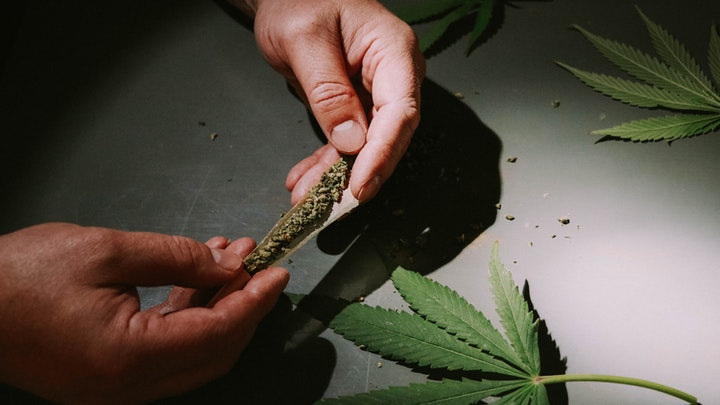For years, we have seen a lot of cases concerning marijuana, and many giants in the business have been caught and taken to court. Even recently, we have witnessed the burning of more than 300 hectares of fields of marijuana in Musoma and an increasing of individuals transporting both bush weed and Skunk Varieties.
A few days back, more than 1000 kg of skank marijuana was caught by police. But also, in recent statistics, it has been provided that women are leading in the use of skank marijuana, and the reasons mentioned were a decrease in stress and enjoyment; all these examples highlight the complexity of marijuana usage in Tanzania.
Tanzania is one among many countries that have criminalised marijuana; however, having witnessed widespread marijuana use among students, street dwellers, women, reach people and even members of the police and other security authorities, it is clear that a purely punitive approach has limited impact.
Rather than seeing cannabis solely as a criminal issue, it is time for Tanzania to explore its potential as an economic, medical, and social opportunity.
The Economic Potential of Marijuana
Countries worldwide have demonstrated that regulated cannabis industries can yield significant economic benefits. Canada, for example, legalized recreational marijuana in 2018 and reported billions in sales, creating thousands of jobs in cultivation, distribution, and related sectors.
Similarly, parts of the United States have generated substantial tax revenue through cannabis sales, which funds public infrastructure, healthcare, and education initiatives. Still, Amsterdam is very famous for its regulation of weeds.
With its fertile land and agricultural expertise, Tanzania could capitalize on this opportunity. Instead of burning acres of cannabis, the government could regulate its cultivation and transform it into a source of revenue.
RELATED: Life Imprisonment for Four Soldiers in Gang Rape, But the Alleged Mastermind Walks Free
This could provide economic opportunities for rural communities and contribute to poverty alleviation. Additionally, a regulated marijuana industry could attract foreign investments, transform technology, and develop skills.
Health and Medicinal Benefits
Marijuana’s potential extends beyond economic benefits to health and medicine. Numerous studies have demonstrated its effectiveness in treating chronic pain, reducing seizures in epilepsy patients, and alleviating symptoms of multiple sclerosis, among other conditions.
The World Health Organization has recognized the medicinal value of cannabis compounds such as cannabidiol (CBD).
By legalizing and regulating medical marijuana, Tanzania could improve access to alternative treatments for patients and foster partnerships with international medical research institutions.
This could establish Tanzania as a leader in East Africa’s medicinal cannabis market, providing patients with safe, affordable options and encouraging scientific advancements.
Regulation and Safety Measures
If Tanzania were to decriminalise and regulate marijuana, safety measures must accompany this transformation. A strong regulatory framework is essential to govern cultivation, production, sale, and distribution.
This framework could include licensing requirements, quality controls, and age restrictions to protect minors from exposure.
Public education campaigns must also be launched to raise awareness of use, minimize potential risks, and dispel lingering stigma.
Lessons from countries like Uruguay, which has focused on harm reduction, demonstrate that regulation can reduce unsafe black-market practices and enhance public safety as it did in other products such as alcohol and cigarettes.
Transforming the Criminal Justice Approach
Decriminalizing marijuana would have far-reaching implications for Tanzania’s legal system. Currently, many proper face arrest and incarceration for possessions, overwhelming the judiciary and prisons.
By adopting a more progressive approach, the government could reduce the burden on law enforcement and focus resources on serious crimes and rehabilitation programs,
Reallocating funds from punitive enforcement to initiatives that address drug abuse and offer treatment options is crucial. For individuals struggling with addictions, this shift would foster a healthier society where those in need receive help rather than punishment.
International Trade and Tourism Opportunities
Legalizing and regulating marijuana also opens avenues for international trade and tourism. Tanzania could leverage its agricultural prowess to export industrial hemp, a versatile product used in textiles, construction, biofuels, and more.
The global demand for hemp is growing, and Tanzania has an opportunity to establish itself as a major supplier.
Additionally, marijuana tourism is a growing industry in countries. I have given an excellent example of Amsterdam, where many people travel just to have a joint In a coffee shop.
Tanzania’s rich culture and natural beauty would appeal to cannabis tourists, boosting the tourism sector and generating foreign exchange. Clear regulations, however, would need to be in place to prevent potential challenges and ensure safety.
Proposed Steps for the Tanzania Government
To realize these opportunities, the government must approach marijuana reform cautiously and strategically. Initiating pilot projects to study legalisation’s social, economic, and health impacts would provide valuable data and guide policy decisions.
Public-private partnerships could facilitate the development of a regulated cannabis industry, with active involvement from farmers, businesses, and regulatory bodies.
Community engagement is critical. It is essential to involve citizens, religious leaders, healthcare professionals, and civil society organizations in an open dialogue about marijuana reform.
This participatory approach would build trust, dispel misconceptions, and foster a consensus-driven path forward.
Tanzania stands at a crossroads in addressing the challenges and opportunities posed by marijuana; by shifting from criminalization to regulation, the country could unlock significant economic, health, and social benefits.
Transforming cannabis into a legitimate industry requires a balanced approach that protects public safety, promotes responsible use, and maximizes economic gains.
Embracing this change would not only reduce the strain on our justice system but also position Tanzania as a regional leader in innovation, economic growth, and public health.
It is time for Tanzania to view marijuana not as a crime but as an opportunity to build a more prosperous, inclusive, and forward-thinking society.

